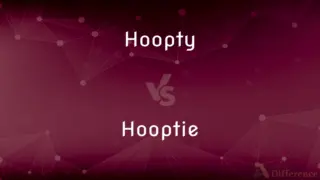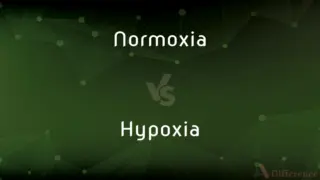Construe vs. Construct — What's the Difference?
By Tayyaba Rehman & Maham Liaqat — Updated on April 22, 2024
"Construe" involves interpreting or understanding the meaning of something, while "construct" refers to building or forming by putting parts together.

Difference Between Construe and Construct
Table of Contents
ADVERTISEMENT
Key Differences
"Construe" generally relates to the process of interpretation, where one seeks to uncover the implied meaning behind words, texts, or actions. On the other hand, "construct" is about the physical or abstract assembly of components to create something new.
When one construes a statement, they analyze the language and context to derive its significance, whereas constructing often involves following specific plans or guidelines to achieve a predetermined outcome.
In legal or literary analysis, to construe a document means to decipher its intended message based on established principles of interpretation. Conversely, to construct a legal argument or a narrative means to meticulously organize facts and ideas into a coherent structure.
The skills required to construe effectively include critical thinking and a deep understanding of language nuances, while construction skills typically focus on problem-solving, engineering principles, or creativity in arranging elements.
Construing often leads to multiple interpretations depending on the perspective of the interpreter, highlighting subjectivity in understanding. In contrast, constructing something typically yields a tangible or clearly defined result, emphasizing objectivity and functionality.
ADVERTISEMENT
Comparison Chart
Definition
To interpret or understand the meaning of something.
To build or form by putting parts together.
Focus
Implied meaning and interpretation.
Physical or abstract creation.
Skills Required
Critical thinking, understanding of language.
Engineering, problem-solving, creativity.
Result Type
Subjective interpretations.
Tangible or defined creations.
Usage in Context
Legal, literary analysis.
Construction, engineering, art.
Compare with Definitions
Construe
To analyze the meaning of linguistic or social phenomena.
Scholars often construe ancient texts to understand historical contexts.
Construct
To develop or form mentally; imagine.
Children often construct elaborate fantasy worlds.
Construe
To understand or explain the intention of words or actions.
She construed his silence as agreement.
Construct
To put together substances or components.
The company constructs electronic devices from imported parts.
Construe
To make inferences from text or speech.
How you construe the data can affect your conclusions.
Construct
To build or form by assembling parts.
They plan to construct a new bridge over the river.
Construe
To interpret or assign meaning.
The judge construed the law to favor the defendant’s case.
Construct
To create or devise systematically.
The author constructed a complex plot for the novel.
Construe
To perceive or comprehend something in a particular way.
He construed her comments as sarcastic.
Construct
To draw a figure fulfilling certain conditions.
Construct a triangle given one side and two angles.
Construe
To understand or explain the meaning of (something), especially in a particular way; interpret
The waiter construed my smile as assent. The editorial construed the act as irresponsible.
Construct
To form by assembling or combining parts; build.
Construe
To analyze the structure of (a clause or sentence).
Construct
To create (an argument or a sentence, for example) by systematically arranging ideas or terms.
Construe
To use syntactically
The noun fish can be construed as singular or plural.
Construct
(Mathematics) To draw (a geometric figure) that meets specific requirements.
Construe
To translate, especially aloud.
Construct
Something formed or constructed from parts.
Construe
To analyze grammatical structure.
Construct
A concept, model, or schematic idea
A theoretical construct of the atom.
Construe
To be subject to grammatical analysis.
Construct
A concrete image or idea
"[He] began to shift focus from the haunted constructs of terror in his early work" (Stephen Koch).
Construe
An interpretation or translation.
Construct
Something constructed from parts.
The artwork was a construct of wire and tubes.
Loops and conditional statements are constructs in computer programming.
Construe
A translation.
Construct
A concept or model.
Bohr's theoretical construct of the atom was soon superseded by quantum mechanics.
Construe
An interpretation.
Construct
(genetics) A segment of nucleic acid, created artificially, for transplantation into a target cell or tissue.
Construe
(transitive) To interpret or explain the meaning of something.
Construct
(transitive) To build or form (something) by assembling parts.
We constructed the radio from spares.
A wall constructed of random stones.
Construe
To analyze the grammatical structure of a clause or sentence; to parse.
Construct
(transitive) To build (a sentence, an argument, etc.) by arranging words or ideas.
A sentence may be constructed with a subject, verb and object.
Construe
To admit of grammatical analysis.
Construct
To draw (a geometric figure) by following precise specifications and using geometric tools and techniques.
Construct a circle that touches each vertex of the given triangle.
Construe
(transitive) To translate.
Construct
To put together the constituent parts of (something) in their proper place and order; to build; to form; to make; as, to construct an edifice.
Construe
To infer.
Construct
To devise; to invent; to set in order; to arrange; as, to construct a theory of ethics.
Construe
To apply the rules of syntax to (a sentence or clause) so as to exhibit the structure, arrangement, or connection of, or to discover the sense; to explain the construction of; to interpret; to translate.
Construct
Formed by, or relating to, construction, interpretation, or inference.
Construe
To put a construction upon; to explain the sense or intention of; to interpret; to understand.
Thus we are put to construe and paraphrase our own words to free ourselves either from the ignorance or malice of our enemies.
And to be dull was construed to be good.
Construct
An abstract or general idea inferred or derived from specific instances
Construe
Make sense of; assign a meaning to;
What message do you see in this letter?
How do you interpret his behavior?
Construct
Make by combining materials and parts;
This little pig made his house out of straw
Some eccentric constructed an electric brassiere warmer
Construct
Put together out of components or parts;
The company fabricates plastic chairs
They manufacture small toys
Construct
Draw with suitable instruments and under specified conditions;
Construct an equilateral triangle
Construct
Create by linking linguistic units;
Construct a sentence
Construct a paragraph
Construct
Create by organizing and linking ideas, arguments, or concepts;
Construct a proof
Construct an argument
Construct
Reassemble mentally;
Reconstruct the events of 20 years ago
Common Curiosities
What does it mean to construe a text?
To construe a text means to interpret or find the intended meaning based on the language and context.
What is involved in constructing a building?
Constructing a building involves planning, designing, and assembling materials to create a structure.
Can the meaning of an artifact be construed?
Yes, the meaning or purpose of an artifact can be construed based on its cultural and historical context.
How does construing differ from simple reading?
Construing goes beyond just reading the text; it involves analyzing and interpreting the deeper meanings and implications of the words, considering context and subtleties.
What tools are needed for construction in architecture?
Tools for construction in architecture typically include drafting instruments, software for design and modeling, and various physical tools for building, like hammers, drills, and cranes.
How does one construct a valid argument?
To construct a valid argument, one must logically organize facts and reasoning to support a conclusion.
Is constructing always a physical activity?
No, constructing can also refer to creating abstract concepts or plans mentally or digitally.
What is the role of creativity in construction?
Creativity plays a vital role in construction, especially in design and problem-solving, allowing for innovative solutions and aesthetic choices in the development of structures or systems.
Can emotions or expressions be construed?
Yes, emotions or expressions can be construed by observing body language, facial expressions, and the context of interactions to interpret underlying feelings or attitudes.
How does cultural background influence how we construe messages?
Cultural background significantly influences construal as it affects perception, understanding, and interpretation of messages based on cultural norms, values, and prior experiences.
Share Your Discovery

Previous Comparison
Hoopty vs. Hooptie
Next Comparison
Normoxia vs. HypoxiaAuthor Spotlight
Written by
Tayyaba RehmanTayyaba Rehman is a distinguished writer, currently serving as a primary contributor to askdifference.com. As a researcher in semantics and etymology, Tayyaba's passion for the complexity of languages and their distinctions has found a perfect home on the platform. Tayyaba delves into the intricacies of language, distinguishing between commonly confused words and phrases, thereby providing clarity for readers worldwide.
Co-written by
Maham Liaqat















































